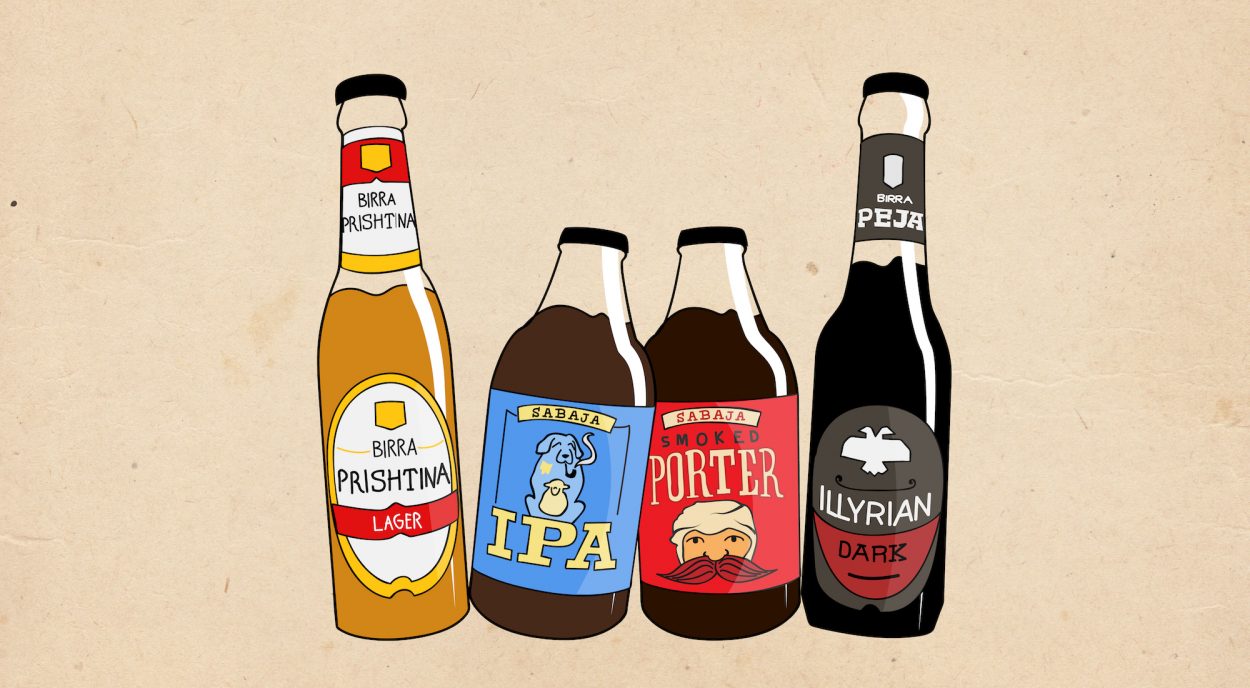Pumpaj Dinstanović
Zaslužan član
- Poruka
- 105.649
Kod Hesihija Aleksandrijskog imamo još jednu mesapsku glosu: bisbē (bisbēn ili bisbēs): „alatka za obrezivanje”. Po njemu, odgovrajući festival naziva se Bisbaja.
βίσβης/βίσβην δρέπανον λέγουσι Μεσάπιοι. καὶ ἑορτην Βισβαια, ην ἡμεῖς κλαδευτήρια

Filološka analiza i paralele:
Root / lemma: bhei(ǝ)-, bhī- (*bheiH- > bhiH-ti̯o- > bhiH-tueh2)
Meaning: to hit
Material: Avestan byente ` they fight, hit' (H. Lommel KZ. 67, 11);
Armenian bir ` big stick , club, mace, joint' (*bhi-ro-);
gr. φῑτρός m. `tree truck, wooden log', φῑμός m. `toggle, muzzle';
Maybe alb. (*bheiH) bie `hit, strike', bie `fall, die', causative, subjunctive bjeri `strike' = bjer `bring' : [Common ḫ- > j- Slavic Albanian; ḫ- > i̯-, y- Old Indic Tocharian].
Alb. and Armenian prove that Root / lemma: bhei(ǝ)-, bhī- : `to hit' derived from Root / lemma: bher-1 : `to bear, carry' through an Illyrian -r > -j.
In o- grade:
Venetic PN φohiio-s-, Illyrian VN Bοιοί ` the combatants, fighters ' (: Russian boj), gr.-Illyrian PN Bοῖον ὄρος, VN Βοιωτοί, Celtic-Illyrian VN Boii; Messapic βίσβην δρέπανον ἀμπελοτόμων, βισβαῖα κλαδευτήρια Hes.;
Latin perfinēs ` break through, break in pieces, shiver, shatter ' Hes.;
Old Irish ben(a)id `hits, knocks' (*bi-na-ti), ro-bīth ` was hit ', bīthe `beaten', fo bīth ` weel ' (= ` under the blow '), Middle Breton benaff ` cut, bite', Old Welsh etbinam ` to mangle ', without n-Infix Old Breton bitat ` cut loose, cut off ', Welsh bidio ` cut a hedge ', bid ` thorn hedge ', Middle Irish fid(h)b(h)a `sickle' = Old Welsh uiidimm ` lignite ', Modern Welsh gwyddyf `scythe, pruning knife' = gallo-Latin vidubium `hack, mattock, hoe ' (*vidu-bion ` wood hoe '), compare Middle Irish PN Faíl-be ` (*weapon, magic wand for killing wolves) wolf killer' (*vailu-bios); Old Irish binit f. `rennet, cleaver' (`incisive', *bi-n-antī), Middle Irish bian `skin, fell, fur', Old Irish bīáil `hatchet', Old Welsh bahell, Modern Welsh bwyell, bwyall ds., Middle Breton bouhazl ds. (*bhii̯ǝli-), Old Irish bēimm n. `blow, knock' (*bhei-smn̥), Cornish bommen ds., gall. *biliā `tree stump', French bille;
Old Icelandic bīldr ` head of the arrow, bloodletting iron ' (*bhei-tlo-); Old High German bī(h)al `hatchet' (*bheiǝ-lo-), hence probably Germanic *bilja- and not *biÞla- in Old High German Old English bill n., Old Saxon bil `sword', Middle High German bil, billes `stone mattock ', Modern High German Bille f. `hack, mattock, hoe', Middle High German billen ` to hoe, chip, trim ', Old High German bilōthi, bilidi, Modern High German Bild; Old High German billa f. `sourdough'; with formants -li- Old English bile m. `bill, beak, neb', additional form to English bill;
Old Church Slavic bijǫ (bьjǫ) biti `hit', Serbo-Croatian bȉjêm bȉti, Russian bьju bitь ds., Alb. bije, bie ` strike, hit ' therefrom with formants -dhlo-: Russian-Church Slavic bilo n. ` a louse rake or comb ', Serbo-Croatian bȉlo ` the transverse piece of wood at the front of a wooden rake (to rake leaves with) ', Czech bidlo ` shaft, pole', Russian bíɫo `beetle, hammer'; (*bhiH-tueh2)bítva `fight, struggle, blow, knock' (: Messapic βίσβη), Old Church Slavic bičь `whip, scourge' (from Slavic Modern High German Peitsche); in vowel gradation Old Church Slavic (*bhoiH-o-) u-bojь m. `murder', Serbo-Croatian bôj, Gen. bȍja `battle', Russian Czech boj ds. (: Illyrian Boii).
http://www.geocities.ws/iliria1/etymology1.html
βίσβης/βίσβην δρέπανον λέγουσι Μεσάπιοι. καὶ ἑορτην Βισβαια, ην ἡμεῖς κλαδευτήρια
Filološka analiza i paralele:
Root / lemma: bhei(ǝ)-, bhī- (*bheiH- > bhiH-ti̯o- > bhiH-tueh2)
Meaning: to hit
Material: Avestan byente ` they fight, hit' (H. Lommel KZ. 67, 11);
Armenian bir ` big stick , club, mace, joint' (*bhi-ro-);
gr. φῑτρός m. `tree truck, wooden log', φῑμός m. `toggle, muzzle';
Maybe alb. (*bheiH) bie `hit, strike', bie `fall, die', causative, subjunctive bjeri `strike' = bjer `bring' : [Common ḫ- > j- Slavic Albanian; ḫ- > i̯-, y- Old Indic Tocharian].
Alb. and Armenian prove that Root / lemma: bhei(ǝ)-, bhī- : `to hit' derived from Root / lemma: bher-1 : `to bear, carry' through an Illyrian -r > -j.
In o- grade:
Venetic PN φohiio-s-, Illyrian VN Bοιοί ` the combatants, fighters ' (: Russian boj), gr.-Illyrian PN Bοῖον ὄρος, VN Βοιωτοί, Celtic-Illyrian VN Boii; Messapic βίσβην δρέπανον ἀμπελοτόμων, βισβαῖα κλαδευτήρια Hes.;
Latin perfinēs ` break through, break in pieces, shiver, shatter ' Hes.;
Old Irish ben(a)id `hits, knocks' (*bi-na-ti), ro-bīth ` was hit ', bīthe `beaten', fo bīth ` weel ' (= ` under the blow '), Middle Breton benaff ` cut, bite', Old Welsh etbinam ` to mangle ', without n-Infix Old Breton bitat ` cut loose, cut off ', Welsh bidio ` cut a hedge ', bid ` thorn hedge ', Middle Irish fid(h)b(h)a `sickle' = Old Welsh uiidimm ` lignite ', Modern Welsh gwyddyf `scythe, pruning knife' = gallo-Latin vidubium `hack, mattock, hoe ' (*vidu-bion ` wood hoe '), compare Middle Irish PN Faíl-be ` (*weapon, magic wand for killing wolves) wolf killer' (*vailu-bios); Old Irish binit f. `rennet, cleaver' (`incisive', *bi-n-antī), Middle Irish bian `skin, fell, fur', Old Irish bīáil `hatchet', Old Welsh bahell, Modern Welsh bwyell, bwyall ds., Middle Breton bouhazl ds. (*bhii̯ǝli-), Old Irish bēimm n. `blow, knock' (*bhei-smn̥), Cornish bommen ds., gall. *biliā `tree stump', French bille;
Old Icelandic bīldr ` head of the arrow, bloodletting iron ' (*bhei-tlo-); Old High German bī(h)al `hatchet' (*bheiǝ-lo-), hence probably Germanic *bilja- and not *biÞla- in Old High German Old English bill n., Old Saxon bil `sword', Middle High German bil, billes `stone mattock ', Modern High German Bille f. `hack, mattock, hoe', Middle High German billen ` to hoe, chip, trim ', Old High German bilōthi, bilidi, Modern High German Bild; Old High German billa f. `sourdough'; with formants -li- Old English bile m. `bill, beak, neb', additional form to English bill;
Old Church Slavic bijǫ (bьjǫ) biti `hit', Serbo-Croatian bȉjêm bȉti, Russian bьju bitь ds., Alb. bije, bie ` strike, hit ' therefrom with formants -dhlo-: Russian-Church Slavic bilo n. ` a louse rake or comb ', Serbo-Croatian bȉlo ` the transverse piece of wood at the front of a wooden rake (to rake leaves with) ', Czech bidlo ` shaft, pole', Russian bíɫo `beetle, hammer'; (*bhiH-tueh2)bítva `fight, struggle, blow, knock' (: Messapic βίσβη), Old Church Slavic bičь `whip, scourge' (from Slavic Modern High German Peitsche); in vowel gradation Old Church Slavic (*bhoiH-o-) u-bojь m. `murder', Serbo-Croatian bôj, Gen. bȍja `battle', Russian Czech boj ds. (: Illyrian Boii).
http://www.geocities.ws/iliria1/etymology1.html

 No, kao što rekoh, ko priznaje pola mu se prašta.
No, kao što rekoh, ko priznaje pola mu se prašta. 






